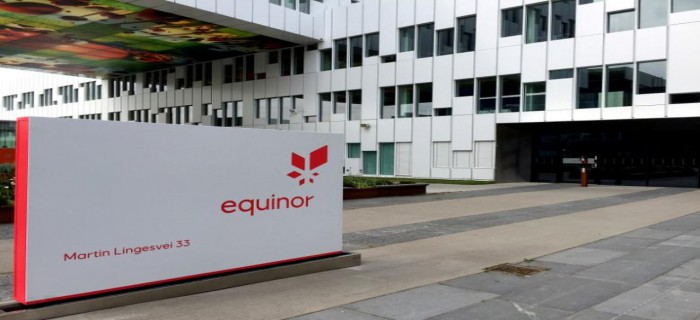
In Brazil, Norway's Equinor eyes new natural gas infrastructure: Brazil chief
Norway's Equinor ASA is scouting locations on Brazil's coast to install new natural gas infrastructure, the company's Brazil chief said, as the firm's gas-heavy offshore fields come on-line in the coming years.
Natural gas is considered both a promising opportunity and a vexing problem in Brazil. The Latin American oil powerhouse is rapidly developing a prolific oil area off the nation's southeastern coast known as the pre-salt.
Many of the region's assets have significant amounts of natural gas, but consumption is low among Brazilians and the nation has few pipelines and terminals to facilitate exports. As a result, firms have largely opted to "re-inject" the gas, in a process that increases crude output.
That will only work for so long. Some fields coming on-line in the pre-salt have too much gas to re-inject. Two massive government auctions in early November in a gas-rich zone are likely to add to the conundrum.
In an interview, Executive Vice President Margareth Ovrum estimated Equinor's gas condensate Pao de Acucar field would come online in the mid-2020s, making it "probably the first field coming on-line (in Brazil) that needs a gas export solution onshore."
Other firms will be watching Equinor's experience closely.
"We are assessing different opportunities for landfall," Ovrum told Reuters on Monday at the company's office overlooking Rio de Janeiro's Guanabara Bay. "Should we extend a terminal? Do we build a new one? What do we do on the (natural gas liquids) side?"
The firm is having similar conversations at its Carcara field. It expects to begin "first phase" production there in 2023 or the first half of 2024, she said. Equinor has not decided on when it will begin phase two, she added, but that could involve constructing natural gas infrastructure as well.
"FIGHTING FOR VALUE"
Equinor is one of 14 firms signed up for the so-called transfer-of-rights oil bidding round on Nov. 6, in which Brazil's government expects to rake in around $26 billion in signing bonuses.
While the transfer-of-rights assets are considered one-of-a-kind as state-run Petroleo Brasileiro SA has already done exploratory work in the region, some major oil companies has raised concerns about the prices of the assets.
Ovrum said Equinor was studying the potential profitability of the areas, adding that Brazil was competing against other basins.
"Obviously, it's a very high signature bonus," she said.
"You are fighting with other shelves, whether it's Argentina, or the Gulf of Mexico, or Norway or wherever. And you're not fighting for the volume, your fighting for the value."

.gif)
.jpeg)
leave your comment